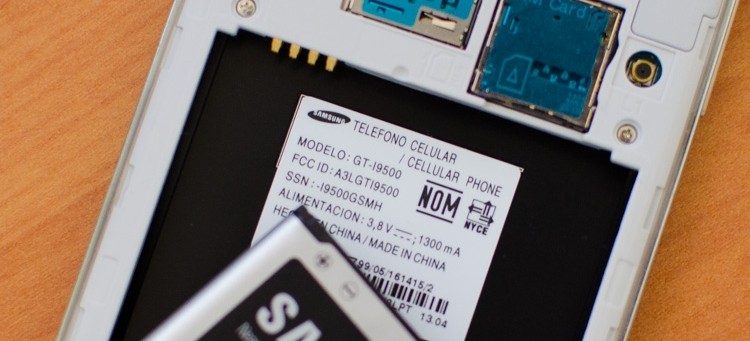
This wouldn't be the first time a company has been caught optimizing their products for a certain benchmark, but quite possibly a first in the world of smartphones. It appears to be Samsung's turn after the discovery of code in the Galaxy S4 that deliberately optimizes the smartphone for various testing suites. A "BenchmarkBooster" was found to include hard coded profiles for certain applications that, depending on the Galaxy S4 model, pushed the phones to their limits.
AnandTech did some snooping to discover that the Galaxy S4 i9500 - the model that features Samsung's Exynos 5 Octa chipset - has code that pushes the PowerVR SGX544MP3 GPU above normal frequencies in benchmarks. They found that in some applications, such as AnTuTu and GLBenchmark 2.5.1, the GPU ran at 532 MHz rather than the standard 480 MHz that is utilized during gaming: a 10.8% increase in clock speed that resulted in ~14% better scores.
Aside from the benchmarking software, at no other time did the Galaxy S4 push its GPU beyond 480 MHz, even in the most demanding of games, making it clear that Samsung is artificially lifting their scores.
The hidden profiles also forced the CPU to use a higher performance mode. Across a range of benchmarks including Linpack, Quadrant and GLBenchmark 2.5.1, upon launching the applications the CPUs were immediately forced to use the most powerful cores (Cortex-A15s) at their top clock speeds (in the case of the i9500 Exynos model), or activate all four cores and run them at their highest clock speeds (in the case of the i9505 Snapdragon model).
Samsung appears to have disabled downclocking the CPU when benchmarks are run, regardless of load, which presents a slightly different situation to real-world usage. Normally the CPU would have to detect heavy usage and either increase the core frequencies, activate more cores, or in the case of the Exynos model, switch to the A15 cores. There can be a slight delay associated with this that could degrade performance.
At the end of the day these performance optimizations don't mean a great deal to end-users, although it would be nice if Samsung made the higher GPU clock available to applications when they need it. Just be careful when comparing the Galaxy S4 i9500 against other phones in benchmarks, as the BenchmarkBooster cheat may have affected the results.
https://www.techspot.com/news/53439-samsung-caught-optimizing-the-galaxy-s4-for-benchmarks.html